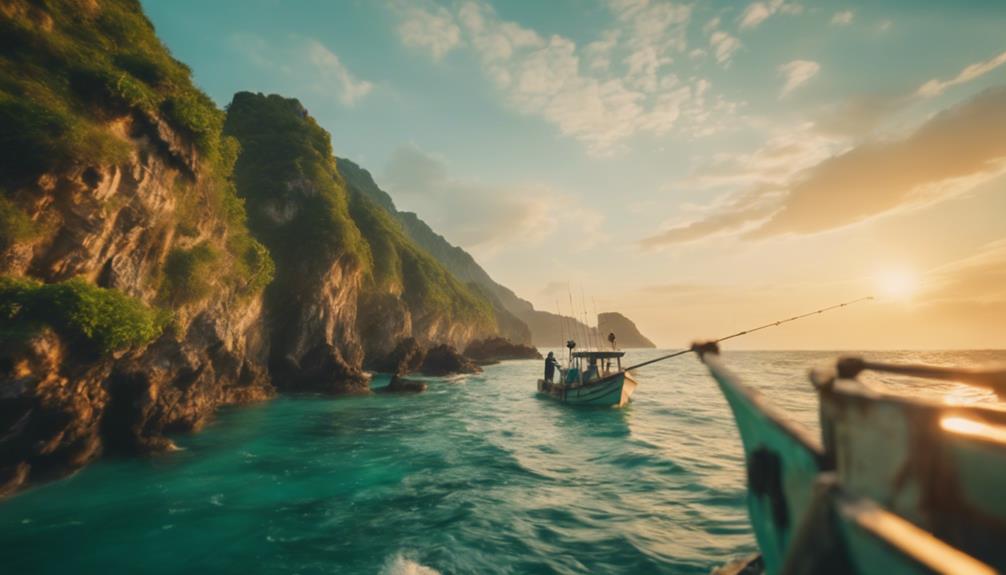Fishing is not only a relaxing pastime but also a great way to connect with nature. However, before you cast your line, it’s essential to understand how much a fishing license costs and what factors influence these prices. In this article, we will explore various aspects of fishing licenses, including types, costs, and additional requirements, to help you prepare for your next fishing adventure.
Types of Fishing Licenses Available
When considering how much a fishing license will cost, it’s crucial to understand that there are different types of licenses available. Generally, fishing licenses can be categorized into freshwater, saltwater, and combination licenses. Freshwater licenses permit fishing in lakes, rivers, and streams, while saltwater licenses are required for fishing in oceans and coastal areas. Combination licenses allow anglers to fish in both freshwater and saltwater habitats. Additionally, some states offer special licenses for seniors, veterans, or disabled individuals, often at reduced rates. Understanding these distinctions will help you determine which license fits your fishing preferences and budget.
Factors Influencing Fishing License Costs
The cost of a fishing license varies widely based on several factors. These include the state in which you are fishing, the type of license you require, and the duration for which you need it. For instance, a one-day fishing license will typically cost less than an annual license. Additionally, some states may offer discounted rates for residents versus non-residents, and fees can vary significantly from state to state. It’s essential to check your local wildlife agency’s website for specific pricing information and any available promotions to ensure you get the best deal.
Average Costs of Fishing Licenses by State
To give you a clearer picture of how much a fishing license costs, here is a brief overview of average prices based on popular fishing states. For example, in California, a one-day freshwater fishing license costs around $17, while an annual license is approximately $52. In Florida, a freshwater license may be around $17 for non-residents, while an annual saltwater license can be about $30. On the other hand, Texas offers a resident fishing license for roughly $30 annually. Keep in mind that these prices can change, so it’s advisable to check with your state’s fish and wildlife agency for the most accurate information.
Understanding Additional Fees and Permits
In addition to the base cost of the fishing license, there may be additional fees or permits required depending on the type of fishing you plan to do. For example, some states enforce special regulations for certain species, which might require additional tags or permits. If you are planning to fish for specific species like salmon or trout, you may need to purchase a special endorsement. Furthermore, there may be fees associated with fishing in certain areas, such as national parks or reserves. Always check local regulations to avoid unexpected costs.
How to Purchase a Fishing License
Now that you have a better understanding of how much a fishing license costs, the next step is to know how to purchase one. Most states allow you to buy a fishing license online through their wildlife agency’s website, which is often the most convenient option. You can also purchase licenses from various retailers, such as sporting goods stores, bait shops, and some grocery stores. If you prefer a more personalized experience, consider visiting your local wildlife office, where staff can assist you in choosing the right license for your needs.
Benefits of Having a Fishing License
Purchasing a fishing license is not just a legal requirement; it comes with numerous benefits. First and foremost, it helps fund wildlife conservation efforts and maintains healthy fish populations, ensuring that future generations can enjoy the sport. Moreover, having a valid fishing license gives you access to exclusive fishing areas that may be off-limits to unlicensed anglers. Additionally, many states periodically offer educational resources and workshops for licensed fishermen, helping you enhance your fishing skills and knowledge.
Fishing License Exemptions and Special Cases
While most individuals need a fishing license, some exemptions exist that may apply to you. Many states offer free fishing days, allowing people to fish without a license for a limited time, often aimed at promoting the sport. Additionally, youth anglers (typically under 16 years old) may be exempt from needing a license, though regulations vary by state. It’s essential to familiarize yourself with local laws to ensure compliance and take advantage of any special cases that may apply to you.
Conclusion: Preparing for Your Fishing Adventure
In conclusion, understanding how much a fishing license costs and the various factors that influence the price is crucial for any angler. By familiarizing yourself with the types of licenses available, the average costs by state, and any additional fees or requirements, you can budget effectively for your fishing trips. Additionally, purchasing a fishing license not only allows you to enjoy the sport legally but also contributes to wildlife conservation efforts, ensuring that fishing remains a sustainable activity for years to come. Before embarking on your next fishing adventure, make sure you have all the necessary permits and licenses to enjoy a hassle-free experience. Happy fishing!
By keeping these tips in mind, you can ensure that your fishing excursions are both enjoyable and compliant with local regulations.
